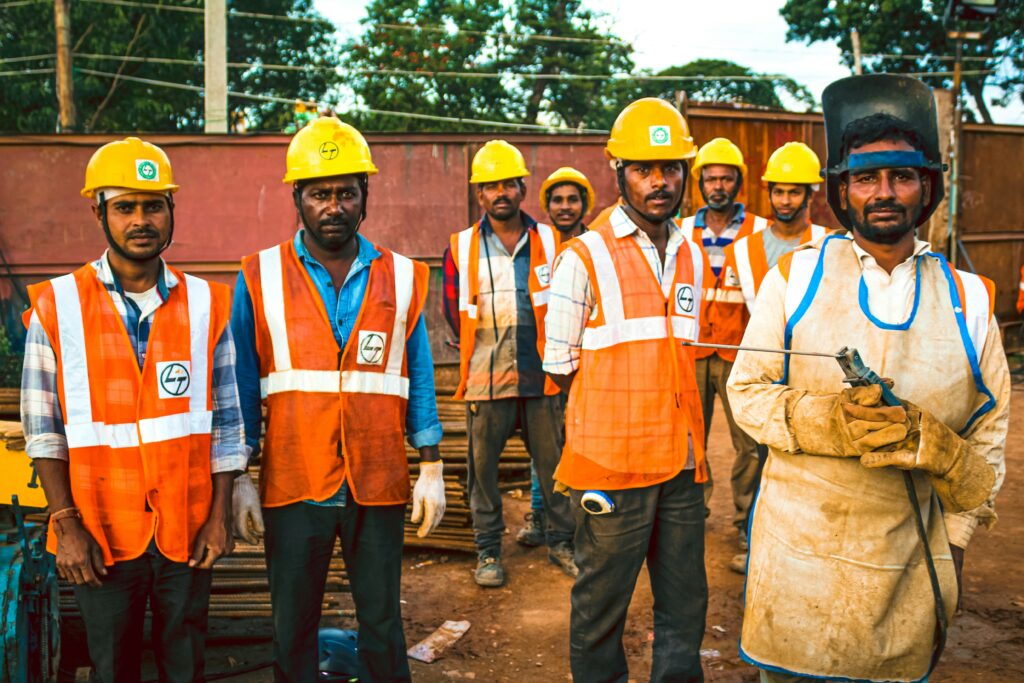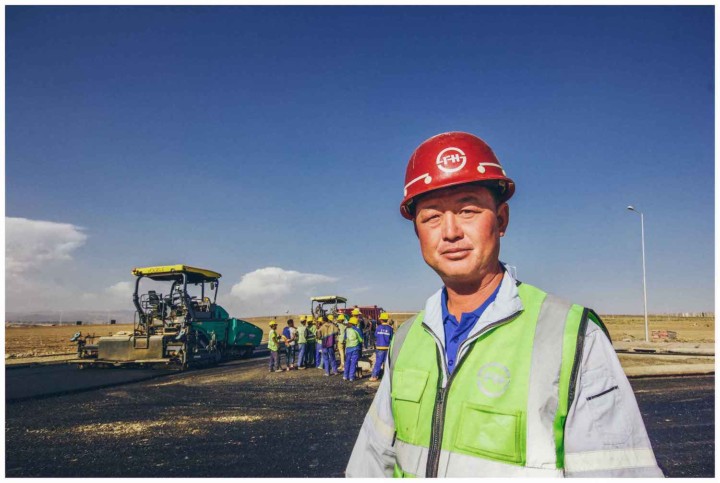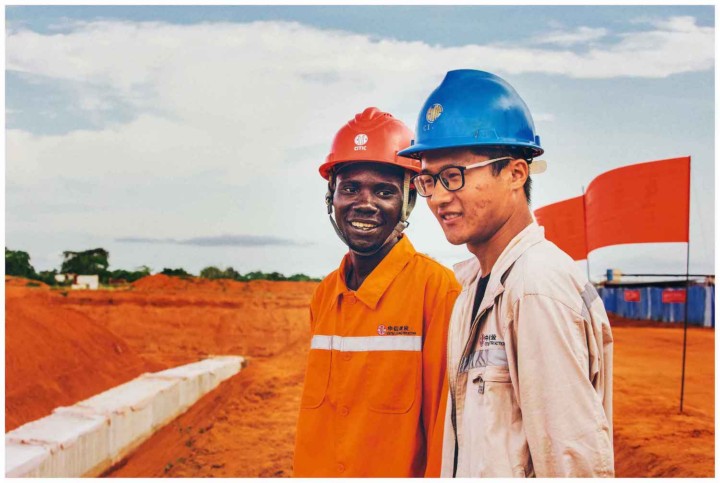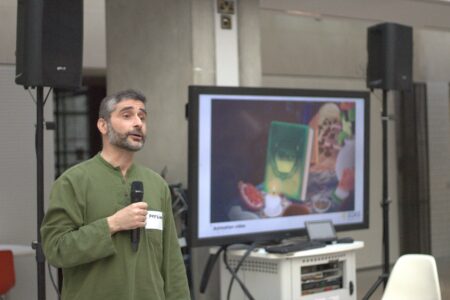In a world grappling with issues like poverty, inequality, and climate change, Development Studies emerges as a crucial field. It delves into the complexities of how nations evolve, examining social, political, economic, and cultural factors that shape their growth. This multifaceted approach equips us with the tools to tackle real-world challenges and build a more equitable future.
A passion for understanding development disparities is what led Fernandes Wanda from Angola to study for a Master’s degree at SOAS University of London‘s Department of Development Studies. The world’s university’s strong focus on Africa and its questioning perspective resonated with the student, providing him with a critical lens to analyse these issues.
Ranked third in the world in the QS World University Rankings by Subject 2024, the Development StudiesDepartment is a leader in its field, tackling many of the world’s most pressing concerns. Development Studies, as a dynamic field rooted in interdisciplinary social sciences, offers evidence-based solutions for a transformative development agenda. It fosters a critical understanding of power dynamics and how inequalities arise and can be challenged.
Students and staff relish these subjects at SOAS. The department combines policy expertise with activism and a vast network of academic and practitioner connections. Students actively engage in global discussions on development, political economy, conflict, migration, humanitarian and environmental issues. Teaching is research-led, ensuring students learn from professors who are thought leaders directly shaping development processes worldwide. Social justice, anti-racism, inclusivity, and decolonial practices are central to the department’s philosophy.
What’s more, SOAS boasts the UK’s second-highest international faculty ratio, solidifying its global standing. Amongst these esteemed faculty members are recently appointed high-profile research professors Naomi Hossain and Dzodzi Tsikata.

Social justice, anti-racism, inclusivity, and decolonial practices are central to the Department of Development Studies. Source: SOAS University of London
Diverse programmes for diverse interests
The department offers six on campus master’s programmes: MSc Global Development (also with optional pathways in Gender or Labour), MSc Environment, Politics and Development, MSc Violence, Conflict and Development, MSc Migration, Mobility and Development, MSc Humanitarianism, Aid and Conflict, and MSc Research for International Development. In addition, many students are enrolled on our successful online MSc programmes, such as Climate Change and Development, Sustainable Development, and Humanitarian Action.
All programmes offer flexibility, allowing students to tailor their learning experience. Each programme includes two core modules and a choice of four electives. These programmes are characterised by academic rigour, sophisticated and pluralistic theoretical frameworks, a commitment to social justice, and real-world projects.
Take the MSc Global Development programme, for example. It provides a solid foundation in development theory and practice, honing independent and critical analysis skills. The curriculum investigates critical issues like the evolving meanings and challenges of development, critiques of neoliberalism, and the dynamics of structural transformations, labour, and capital. Recent graduates have secured positions with prestigious organisations like the ICRC, Amnesty International, Conciliation Resources, and Saferworld the European Parliament, BBC World Service, and the UNODC and UNDP.
A rigorous grounding in development theory, policy, and practice across various contexts equips graduates with highly relevant and transferable skill sets that will endure throughout their careers. Just ask Naina Mangtani, who currently studies the MSc Research for International Development, ‘Doing my MSc programme at SOAS has taught me so much. Not only did I make great friends, but taking modules such as Statistical Research Techniques for International Development, and Fundamentals of Research Methods in Development Studies has provided me with great experience, which has led to me getting a job working for the OECD Development Centre, even before I finish my studies’.
All MSc programmes culminate in a rigorous 10,000-word dissertation, reflecting the department’s commitment to supporting original and impactful research endeavours. Past dissertations have explored bold themes, ranging from the transition from war to peace to the political economy of agrarian change in specific settings.

Source: SOAS, University of London © Davide Scalenghe
At SOAS, all master’s programmes equip students with the skills, knowledge, and competencies essential for success in their chosen career paths. Source: SOAS University of London
A vibrant learning environment
To study at SOAS is to have a great time. Staff and peers are always ready to lend support. There’s an academic advisor for each student, a dedicated programme convenor who can assist with any academic issues, a team to help with administrative issues, and student representatives who attend department faculty meetings to share student views and requests with staff. “At the school level, students have access to student information and welfare services via a centralised student hub, a dedicated app with all the relevant information and tools, academic support via the learning and teaching enhancement team which provides one-to-one tutorials and other inputs, and the support of the dedicated students union,” says Tania Kaiser, Professor & Senior Lecturer in Forced Migration at SOAS.
Regular staff-student social evenings provide opportunities for informal interaction, while events like the Development Studies movie series spark intellectual discourse and social bonding. It’s hard to not get inspired here, given the vast range of backgrounds students come from and the even wider range of societies on campus. Whether students love sports, politics, culture, or music, they are very likely to find a group equally as or more passionate than they are.
“Our students have strong sense of belonging to the department as attested by our alumni when they come across other SOAS graduates in their careers,” says Tania.
Charting a career path
Preparing for a career in development is a multifaceted affair. The department recognises this and thus equips students with not only academic knowledge but also the ability to contextualise and apply this knowledge in policy, political, and activist settings. Many students opt to gain first-hand experience by taking the specialised development placement module. In addition, students can engage with development practitioners through seminars, classes, student groups, internships, and research activities.
By actively applying, engaging and building on their new knowledge and skills, including via authentic assessments that often replicate the output requirements of the workplace, SOAS students are set up for success when taking their next professional steps. After completing her MSc in Development Studies, Weiwei Chen scored an internship with the United Nations Volunteers (Germany) before returning to SOAS to become a research assistant on the ESRC-DFID project on Chinese firms and employment dynamics in Ethiopia’s and Angola’s manufacturing and construction sectors.
This was Chen’s first job in the UK. “This position greatly enriched my knowledge and was invaluable in enhancing my understanding of development,” she says. “It also boosted my employability in academia, especially in topics related to Chinese-African relations or global China studies.”
The department’s excellent careers service provides career counselling, CV writing, and networking opportunities — further enhancing student employability. Faculty also play a vital role in offering guidance, reviewing applications, and providing academic references.
Interested? Learn more about SOAS University of London.
Follow SOAS University of London on Facebook, X, Instagram, LinkedIn, and YouTube












